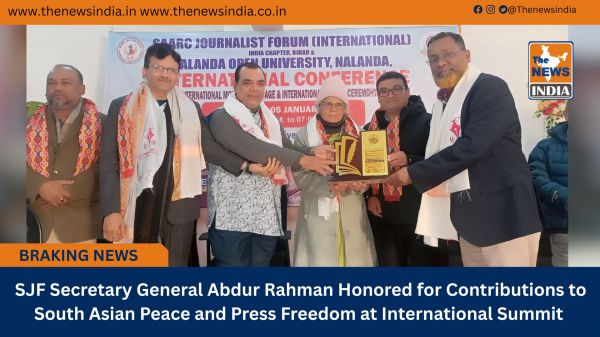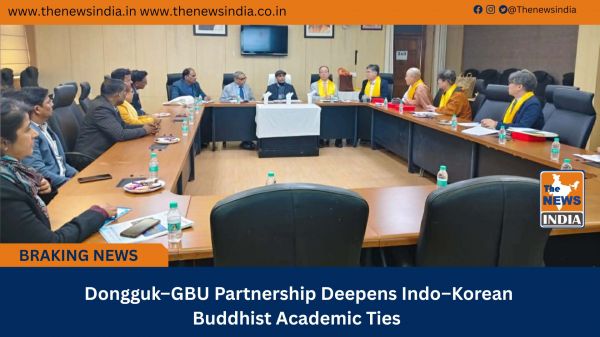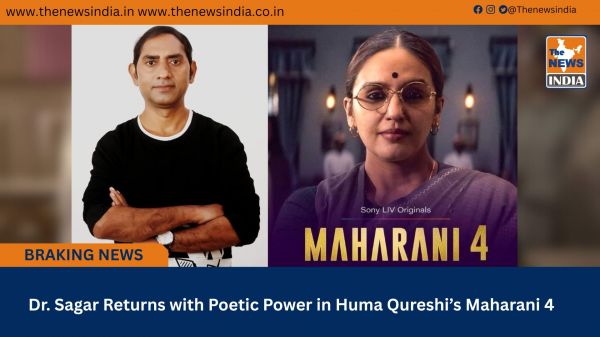Poona Margham From Rehabilitation to Rebirth’ : 210 Maoist Cadres in Dandakaranya Return to the Mainstream
18-Oct-2025
162
TNINS
Raipur : In a landmark moment for Chhattisgarh’s anti-Naxal campaign, 210 Maoist cadres from the Dandakaranya region have surrendered under the state’s comprehensive Poona Margham – Rehabilitation to Rebirth programme. The historic development comes as part of the government’s sustained efforts focused on peace, dialogue, and development across Bastar division.

The surrender marks the dawn of a new era of trust, security, and progress in Bastar. For the long-troubled regions of Abujhmad and North Bastar, this unprecedented mass surrender will be recorded as a decisive turning point in the history of the Naxal eradication drive.

Under the leadership of Chief Minister Vishnu Deo Sai, the state’s multi-dimensional anti-Naxal strategy has laid a solid foundation for lasting peace in the region. Through coordinated efforts by the police, security forces, local administration, social organisations, and vigilant citizens, a culture of violence is being transformed into a culture of dialogue and development.

For the first time in the history of the anti-Naxal movement, such a large number of senior Maoist cadres have laid down arms together. Among the 210 surrendering cadres are one Central Committee member, four Dandakaranya Special Zonal Committee (DKSZC) members, 21 Divisional Committee members, and several other senior Maoist leaders. They surrendered a total of 153 sophisticated weapons, including AK-47s, SLRs, INSAS rifles, and LMGs. This is not merely a surrender of arms, but a symbolic end to an era of fear and bloodshed — a declaration of a new chapter of peace and trust in Bastar.

Prominent Maoist leaders returning to the mainstream include CCM Rupesh alias Satish, DKSZC member Bhaskar alias Rajman Mandavi, Ranita, Raju Salam, Dhannu Vetti alias Santu, and Ratan Elam, among other wanted and rewarded cadres. Each of them expressed faith in the Constitution and resolved to lead a dignified life within the democratic framework.

The ceremony was held at the Jagdalpur Police Lines, where the surrendered cadres were welcomed through the traditional Manjhi-Chalki ritual. They were presented with copies of the Constitution and red roses — symbols of peace, love, and a new beginning.
Director General of Police Arun Dev Gautam, addressing the gathering as the Chief Guest, said “Poona Margham is not just about moving away from Naxalism — it is about giving life a new direction. Those who have returned today will become ambassadors of peace, development, and trust in Bastar.”
He urged the surrendered cadres to channel their energy toward rebuilding society and contributing to the region’s growth.
Also present were ADG (Naxal Operations) Vivekanand Sinha, Commissioner Doman Singh, IG Bastar Range SundarRaj P., Collector Haris S., Superintendents of Police from across Bastar division, senior officers, and representatives from social organisations.
During the programme, the police department briefed the surrendered cadres on various rehabilitation schemes, including financial assistance, housing, and livelihood opportunities. The state government reiterated its commitment to link them with self-employment, skill development, and education initiatives, enabling them to lead self-reliant and dignified lives.
Representatives of Manjhi-Chalki communities emphasized that Bastar’s tradition has always stood for peace, coexistence, and harmony. They said that those who have now returned will strengthen these values and reinforce the foundations of trust within society.
The event concluded with all surrendered cadres taking an oath of allegiance to the Constitution and pledging their commitment to democratic values. They vowed to contribute to development and nation-building instead of violence.
With the resounding chant of Vande Mataram, the ceremony drew to a close — not just marking the surrender of 210 Maoist cadres, but symbolizing the beginning of a new era of faith, development, and peace in Bastar.


.jpg)
.jpg)
.jpg)

.jpg)
.jpg)

.jpg)
.jpg)



.jpg)
.jpg)
.jpg)

.jpg)
.jpg)

.jpg)
.jpg)
.jpg)

.jpg)
.jpg)
.png)
.png)
.jpg)
.png)
.png)
.jpg)
.png)
.png)


.png)
.png)


